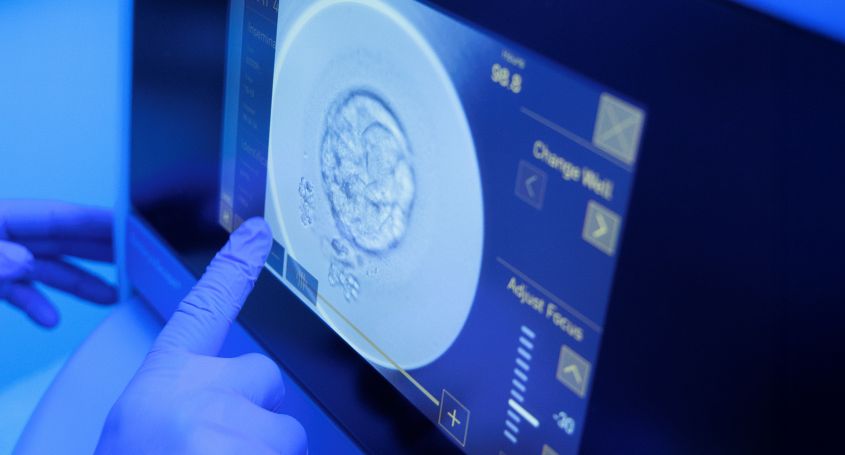One of the essential tests to assess a possible male factor is the seminogram, the basic analysis of the semen sample. An additional test to the basic semen analysis is the TMSC, total motile sperm count. In this test we only count the progressive motile spermatozoa in a semen sample, we separate them from the non-progressive motile spermatozoa, immotile sperm and non-sperm cells (leukocytes, etc.).
To obtain this count, the semen sample must pass through a sperm capacitation process, where the sperm is separated from the seminal plasma. This kind of process occurs naturally in the female tract. The spermatozoa of the ejaculation, as they pass through the cervix and advance through the fallopian tubes, acquire a series of physiological properties that make them capable of fertilizing the egg. Without this capacitatoin, the sperm is unable to fertylize the eggs.
In the Clinics of Assisted Reproduction , the ejaculate is subjected to a similar process than in the laboratory. The sperm capacitation process can be carried out by two techniques, swim-up or density gradient. In both of them, the ejaculate is, first, separated from the seminal plasma, immotile spermatozoa and other non-sperm cells of the progressive motile spermatozoa, and then it is washed and centrifuged. Once this concentrate of motile spermatozoa is obtained, it is possible to proceed to the count.
The result of a TMSC semen analysis may take two to three days or even up to a week, depending on the Clinic.
What information do the results of a TMSC semen analysis provide?
In this test we obtain the progressive motile sperm count, it means the value of spermatozoa that are able to progress and therefore to travel through the fallopian tubes and reach the egg. The result will help the expert to decide on the most appropriate treatment.
If the TMSC shows a high concentration and motility, the sample is suitable for artificial insemination. In case of suboptimal values, the result leads us to IVF or ICSI treatment to increase the chances of success. Although there are no absolute cut-off values, a TMSC higher than 3 million spermatozoa is considered as a limit value by the different scientific societies, although many clinics recommend a concentration higher than 5 million motile spermatozoa to indicate an artificial insemination.
Thus, the TMSC provides us important information about a possible male factor, in order to decide on the ideal treatment for the couple.















